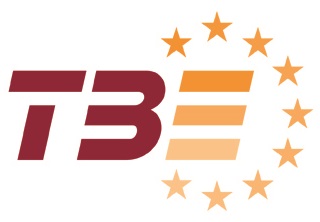The 62nd TBE Congress took place in Naples on 19-20 June 2014, kindly hosted by the Italian brick and tile association ANDIL, which organised their annual meetings on the same occasion. The TBE and ANDIL events drew over 170 CEOs and executives from the bricks and roof tiles industry from across Europe. The annual meetings fall at an important juncture as Italy will be assuming the rotating EU Presidency from 1 July 2014.
On 19 June participants attended the TBE Roof Tiles Product Group, TBE Masonry Product Group and the TBE Environmental & Technical Working Group. These meetings provided updates on current TBE activities in the fields of standardisation, climate and energy, Construction Products Regulation, INSYSME project and sustainable construction. The meetings also provided a platform for experts to share their experiences at national level thus further informing TBE actions at EU level.
Following the TBE Executive Committee, members attended a gala dinner at Naples’ Yacht Club Nautico Savoia. A view of the infamous Mount Vesuvius and the harbour of Naples accompanied the delicious meal.
The TBE General Assembly, held on 20 June, served as an occasion to mark the achievements of 2013-2014 and identify upcoming challenges.
Particularly noteworthy is TBE’s development of Product Category Rules (PCR) for clay bricks, blocks, roof tiles and pavers. At EU level, climate and energy dossiers such as the Environmental and Energy State Aid Guidelines and the Carbon Leakage list 2015-2019 ensured the continued competitiveness of the European industry.
Upcoming challenges for the bricks and roof tiles industry include the implementation of the PCR at CEN level (European Committee for Standardization). TBE will also be working to further the European Commission’s aims outlined in its Communication on Resource Efficiency Opportunities in the Building Sector.
The General Assembly was also an opportunity to celebrate the leadership of TBE’s outgoing President and CEO of Wienerberger AG, Heimo Scheuch. Yiannis Maliouris, the former TBE Vice-President and CEO of B. Maliouris S.A., will gladly take over the task of representing TBE as President.
The rest of the day was devoted to a joint TBE-ANDIL public debate on the topic Paving the way for sustainable growth in Europe. TBE and ANDIL Presidents debated the role of the construction sector in Europe, particularly in the context of the Italian Presidency of the EU, with guest speakers from the European Commission’s DG Enterprise and Industry, the Italian Ministry for Economic Development, the Italian Investment Fund, Federcostruzioni and Confindustria. Political measures to re-launch the construction sector – such as a European plan promoting social housing or support for the rehabilitation of the existing building stock through renovation and rebuilding when appropriate – were discussed and agreed to be crucial for the economic recovery of Italy and the EU.
Thanks to TBE members, ANDIL and the technical partners, the 2014 TBE Congress was a great success and will not soon be forgotten.









